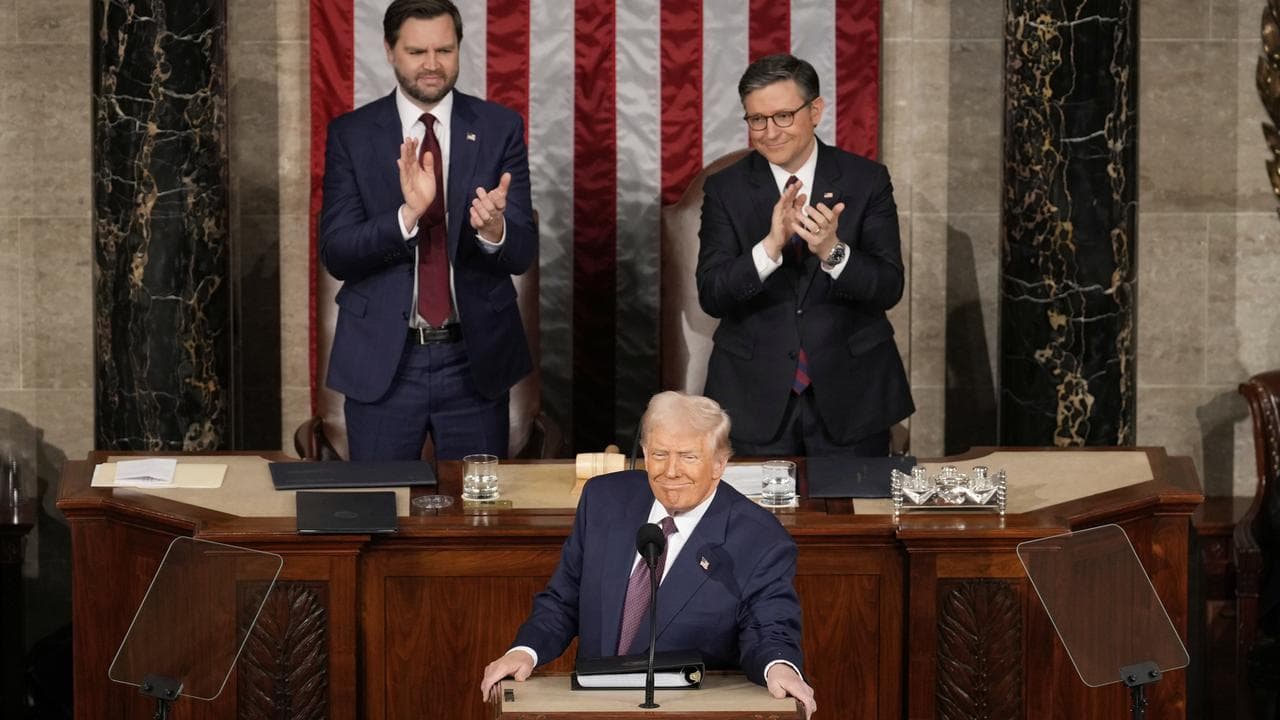
US President Donald Trump has taken a victory lap in an address to Congress, drawing catcalls and interruptions from some Democratic lawmakers who held up signs and walked out mid-speech in protest.
The partisan rancour was reflective of the tumult that has accompanied Trump's first six weeks in office upending US foreign policy, igniting a trade war with close allies and slashing the federal workforce.
The prime-time speech on Tuesday, his first to Congress since taking office on January 20, capped a second day of market turmoil after he imposed sweeping new tariffs against Mexico, Canada and China.
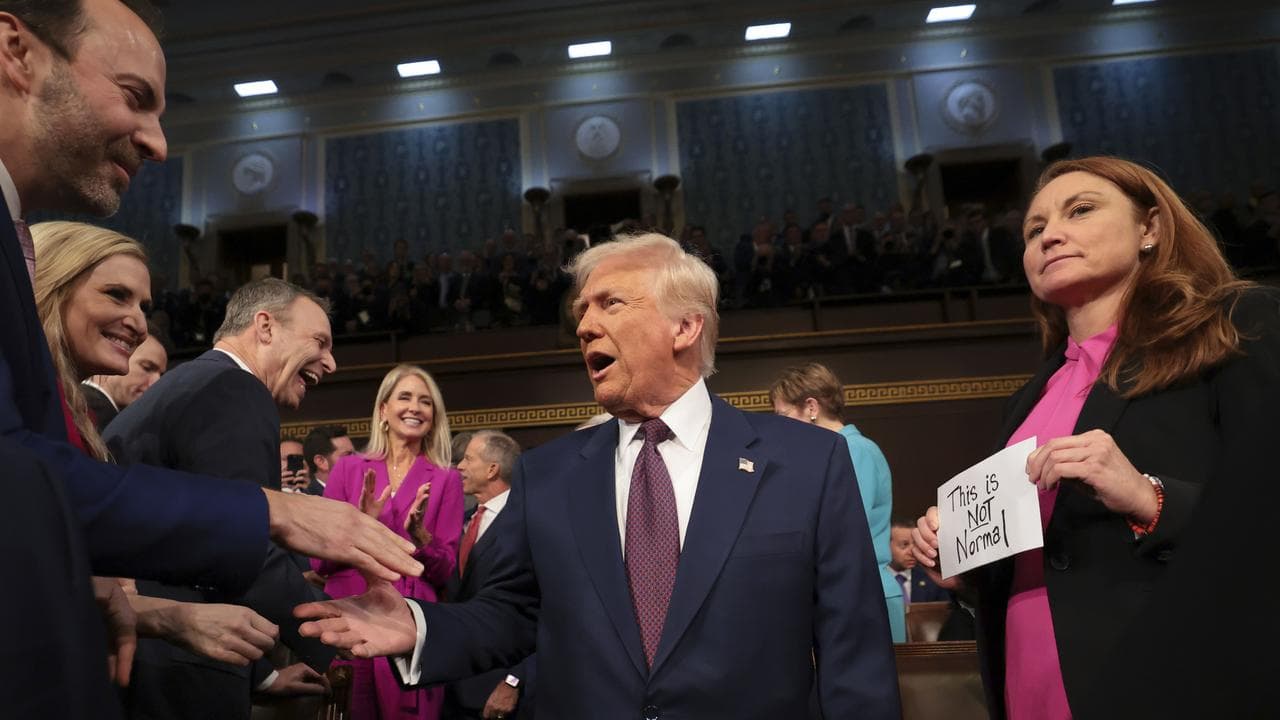
The 100-minute speech was reminiscent of Trump's campaign rallies, with the president assailing his Democratic predecessor Joe Biden, and attacking immigrant criminals as "savages" and what he called "transgender ideology".
He vowed to balance the federal budget, even as he urged lawmakers to enact a sweeping tax cut agenda that analysts say could add more than $US5 trillion ($A8 trillion) to the government's $US36 trillion debt.
World leaders were watching Trump's speech closely, a day after he paused all military aid to Ukraine.
The suspension followed an Oval Office blow-up in which Trump angrily upbraided Ukrainian President Volodymyr Zelenskiy in front of TV cameras.
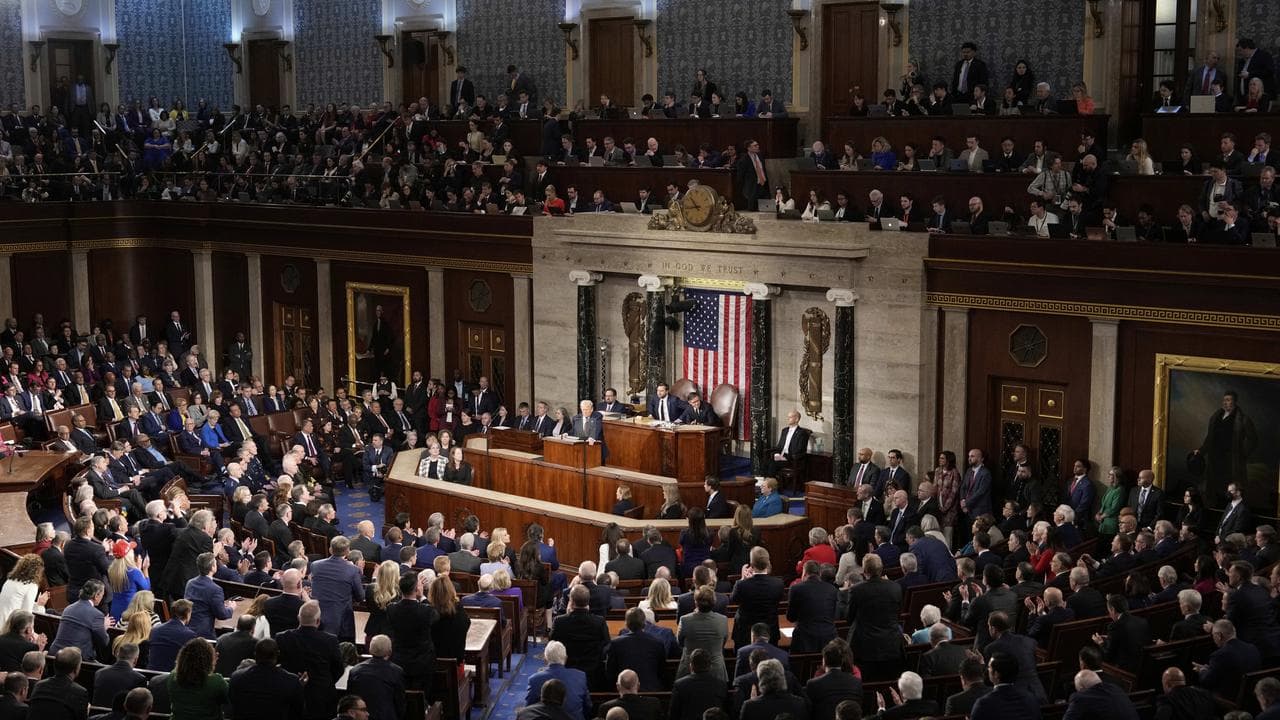
Trump said Zelenskiy wrote him a letter saying Ukraine was prepared to sign a rare earth minerals deal that had been left in limbo by their clash.
"Simultaneously, we've had serious discussions with Russia and have received strong signals that they are ready for peace," Trump said.
"Wouldn't that be beautiful?"
The pause in aid threatened Kyiv's efforts to defend against Russia, which launched a full-scale invasion three years ago, and further rattled European leaders worried that Trump is moving the US too far towards Moscow.
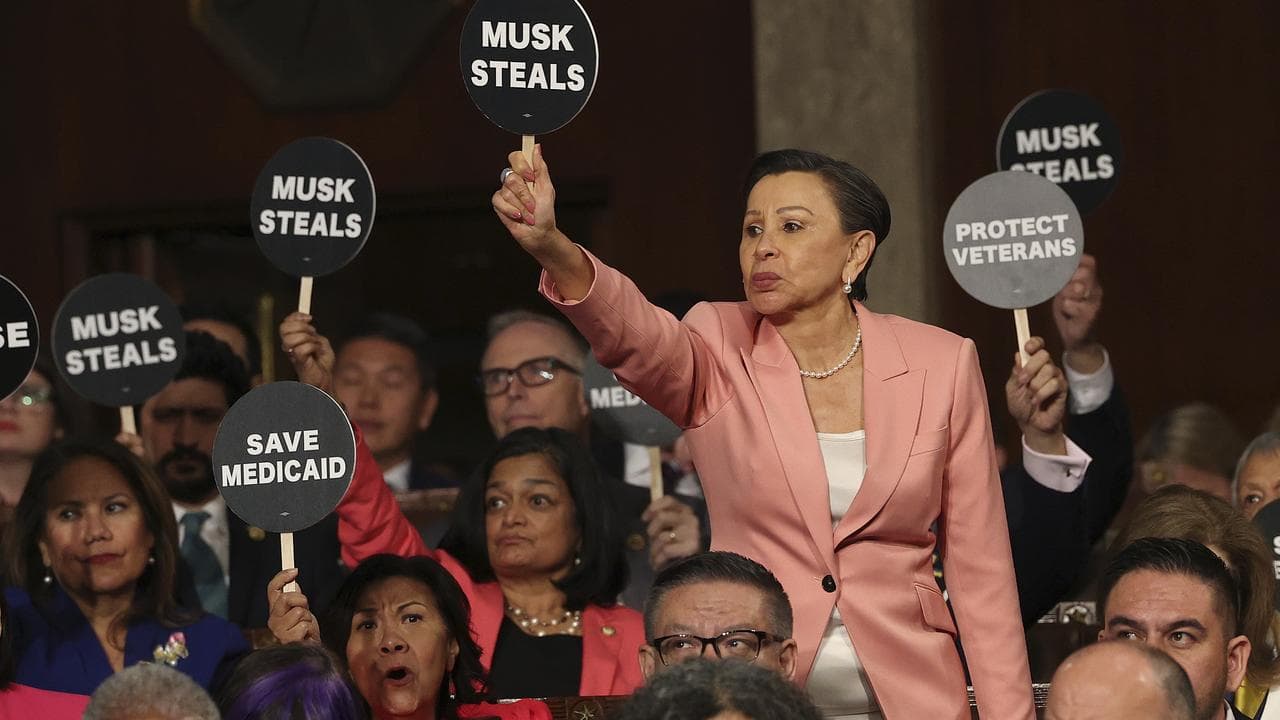
"To my fellow citizens, America is back," Trump began to a standing ovation from fellow Republicans, who hold majorities in the House of Representatives and Senate.
"Our country is on the verge of a comeback the likes of which the world has never witnessed, and perhaps will never witness again."
He boasted his opening weeks in office had been "nothing but swift and unrelenting action", saying "the people elected me to do the job, and I am doing it”.
Democrats held up signs with messages such as "No King" and "This Is NOT Normal", and dozens walked out mid-speech.
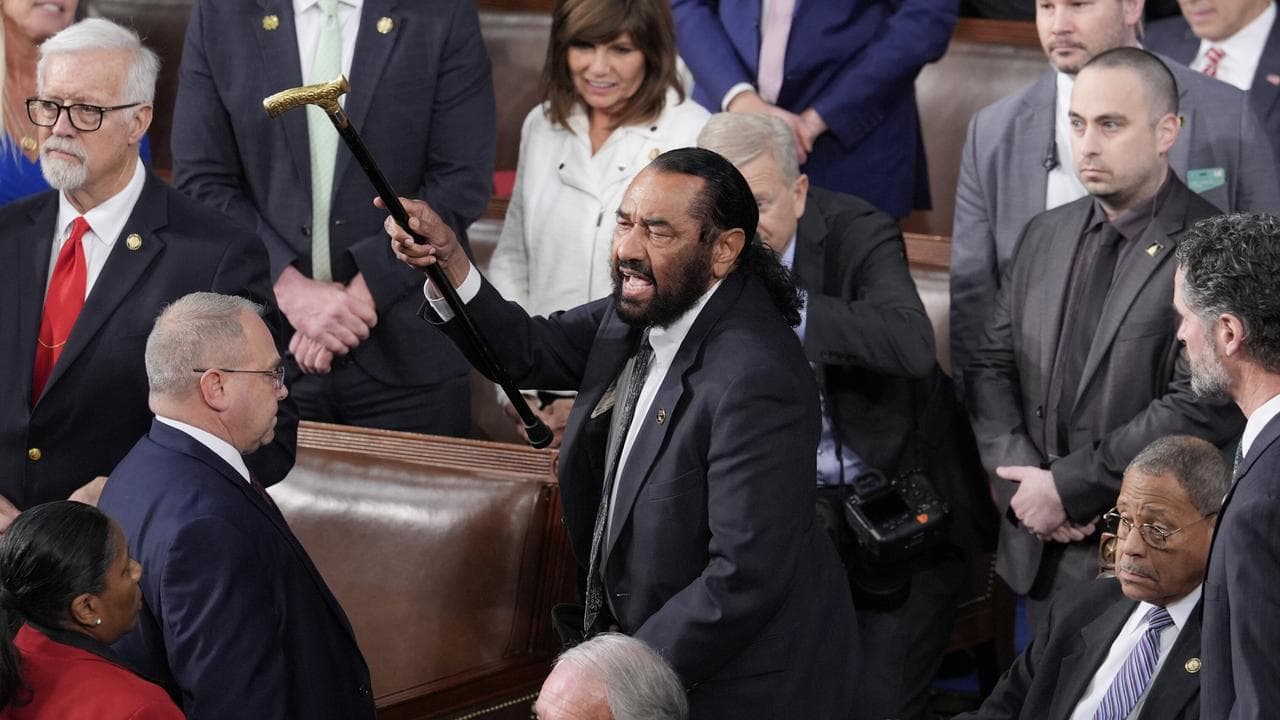
One Texas congressman, Al Green, was ordered removed by Republican House Speaker Mike Johnson after he refused to sit down.
Green appeared to be shouting that Trump did not win a mandate in November's election after the president bragged about the Republicans' victories.
Trump spoke in the House, where lawmakers huddled in fear for their lives four years ago while a mob of Trump supporters ransacked the Capitol to try to overturn Democrat Joe Biden's 2020 victory over the then-incumbent Trump.
The president praised billionaire businessman Elon Musk and his so-called Department of Government Efficiency, which has downsized more than 100,000 federal workers, cut billions of dollars in foreign aid and shuttered entire agencies.
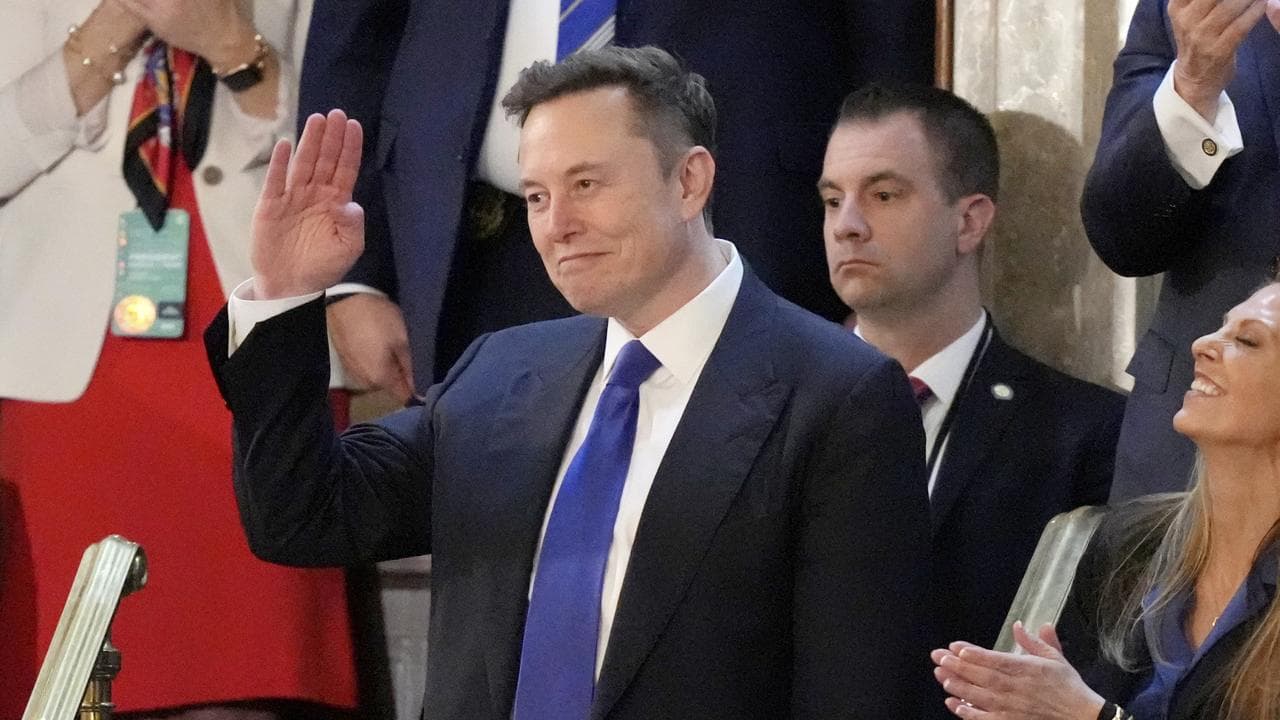
Trump credited Musk with identifying "hundreds of billions of dollars of fraud", a claim that far exceeds even what the administration has claimed.
Musk, seated in the gallery, received ovations from Republicans.
Trump reiterated his intention to impose additional reciprocal tariffs on April 2, a move that would likely roil financial markets even more.
"Other countries have used tariffs against us for decades, and now it's our turn to start using them against those other countries," he said.
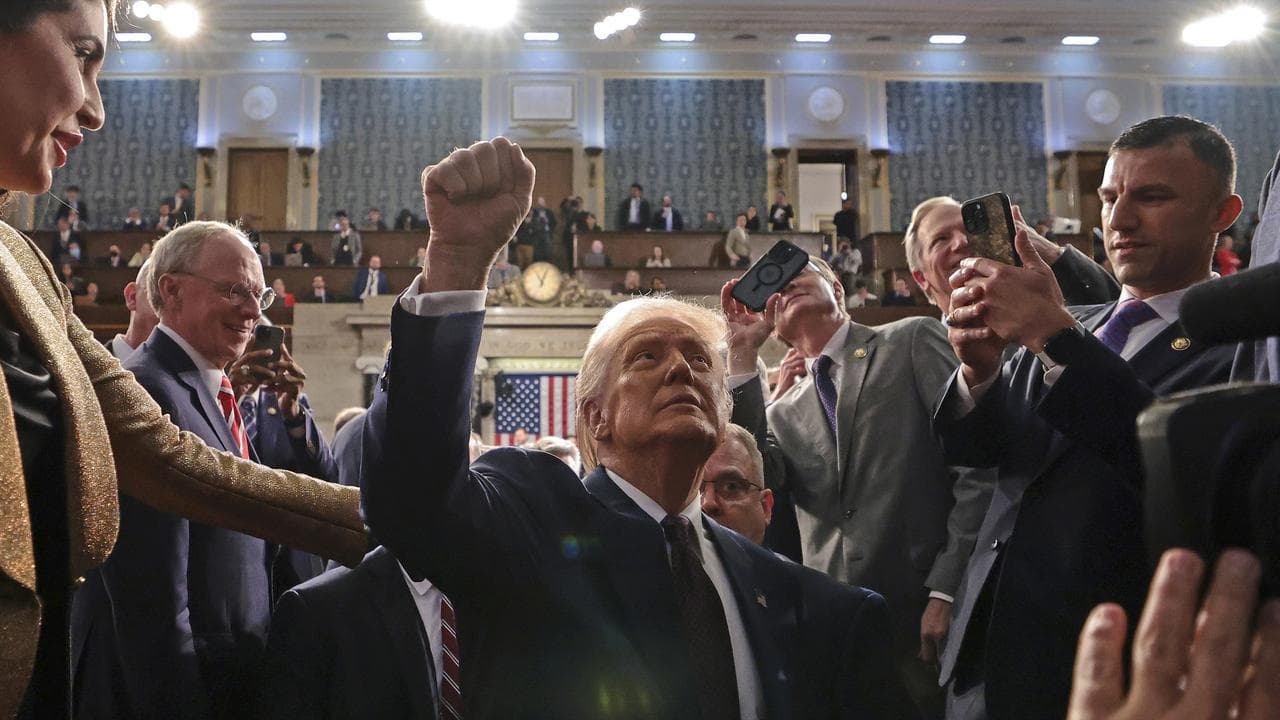
Trump's 25 per cent tariffs on Mexico and Canada and an additional 10 per cent on Chinese imports deepened investor concerns about the economy.
He did not mention falls in financial markets and barely mentioned stubbornly high prices, blaming Biden and saying he was "fighting every day" to lower costs.
Trump urged Congress to extend his 2017 tax cuts, as Republicans push a sweeping $US4.5 trillion plan to extend the cuts, tighten border security and fund a huge increase in deportations.
The proposal calls for $US2 trillion in spending reductions over a decade, with possible cuts to education, health care and other social services.
with AP




